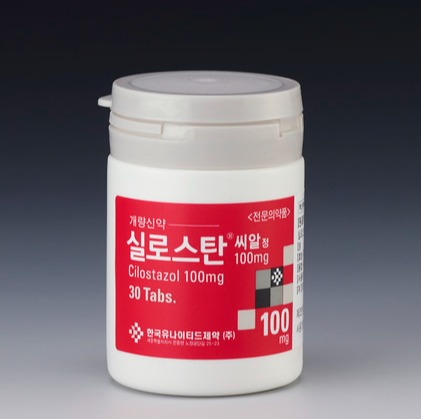Korea United Pharm said it recently won the Taiwan Intellectual Property Office’s recognition of the patent of Cilostan CR Tab. (cilostazol), an incrementally modified drug for intermittent claudication.
The patent guarantees the Korean company’s exclusive rights to cilostazol sustained release technology in Taiwan until 2036.

Korea United Pharm rolled out Cilostan CR Tab in 2013. The tablet uses the “double controlled release system” to release the drug for 24 hours.
Cilostan CR is the only cilostazol agent that comes with the once-daily, singlet-tablet regimen.
The company said that the treatment minimizes the side effects of headaches and tachycardia caused by sudden drug release. In addition, as the drug constantly maintains the level of concentration in the blood, it can offer a safe and sustainable effect even in the long-term use.
Korea United Pharm’s patented technology involves a dissolution profile that can effectively sustain the drug concentration within the body while showing an appropriate dissolution rate at the beginning.
The patent came after Korea United Pharm conducted a study to address the issue of existing sustained-release agents.
When the company formulated cilostazol as a sustained-release matrix tablet, it used a specific sustained-release carrier and a solubilizing agent to control the use of cilostazol and the amount of ethanol solvent.
Korea United Pharm registered the patent in Korea and overseas through the Patent Cooperation Treaty (PCT) in 2015. The patent is also valid in Russia and the Philippines.
Cilostan CR Tab. is Korea United Pharm’s first blockbuster drug, selling more than 10 billion won in 2015. The drug’s revenue recorded 37.2 billion won in 2020 and 18.4 billion won in the first half of 2021.

